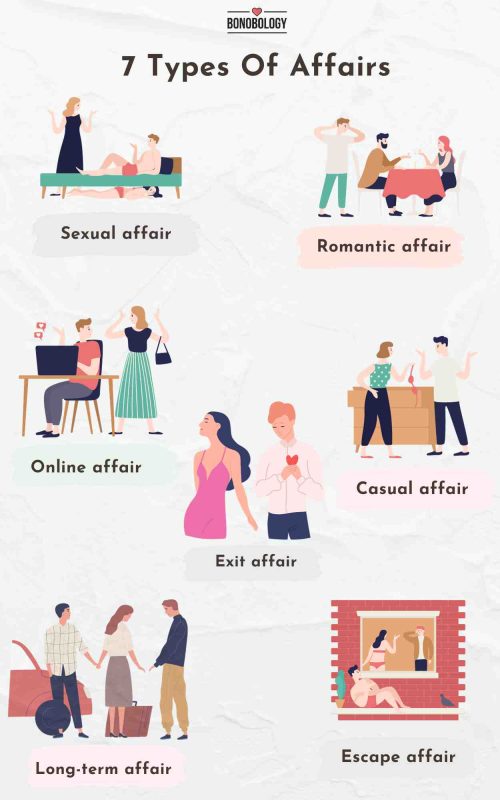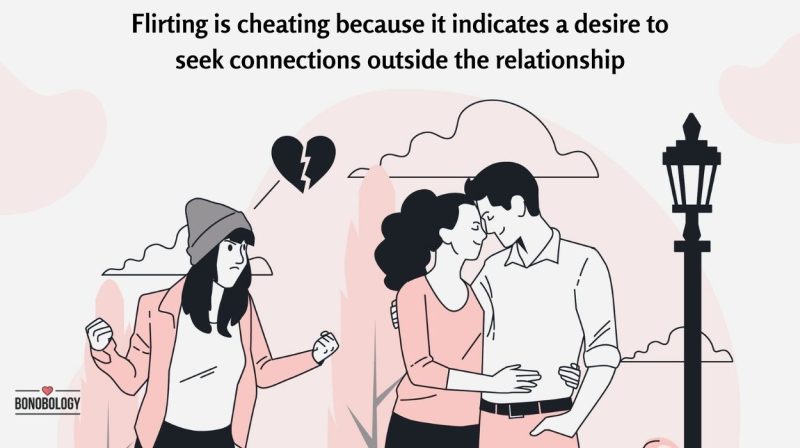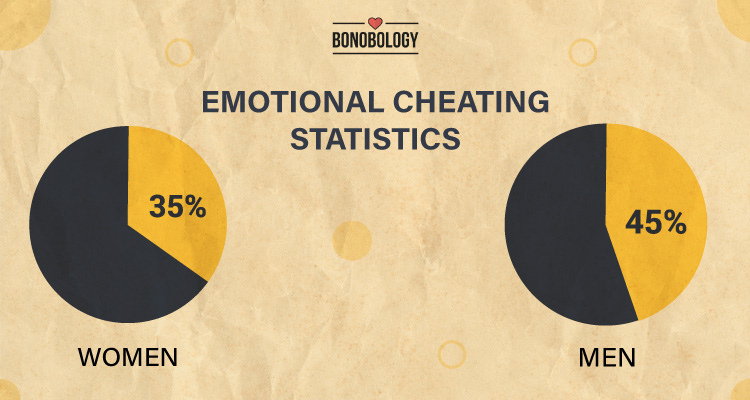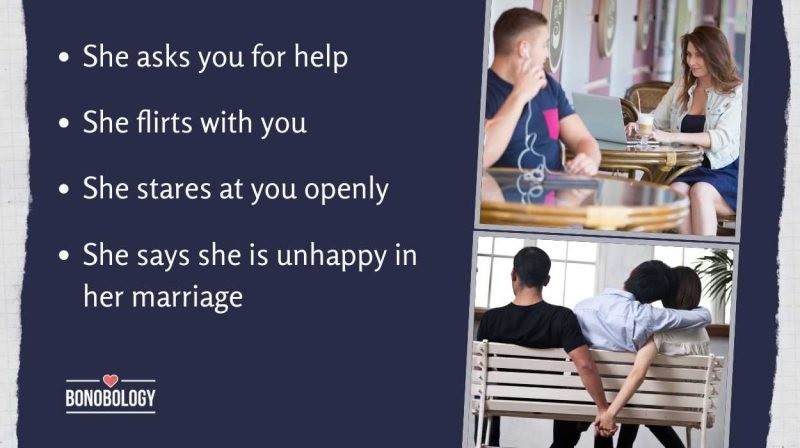When I use the word “affair,” what do you instantly imagine? Being sexually intimate with someone other than one’s partner while in a committed, monogamous relationship, right? Well, the world of infidelity is a little more complex than that, and there are, in fact, 7 types of affairs. People who cheat are driven by different reasons, depending on the personality types of cheaters.
For instance, have you ever watched the movie Last Night? It’s a story about the inner workings of a marriage, where both partners are tempted by different forms of infidelity after a heated argument. It explores the complexities of relationships and the various ways people can be unfaithful. You see, some cheaters are driven by traits like narcissism or entitlement. Others cheat because they’re bored or have low self-esteem.
Some enjoy the thrill of secret affairs, of being sneaky and getting away with it. Some cheat because they’re afraid of intimacy. Then there are those who cheat because they think they married the wrong person. As we said, extramarital relationships are complex, and so are people’s motivations to pursue them. To make sure you’re equipped to deal with this curve ball should it ever hit you, let’s explore what different types of affairs entail and how to deal with them.
7 Types Of Affairs You Did Not Know About
So, what qualifies as cheating in a relationship? Is it only considered an affair when both parties are married? Are affairs always sexual in nature? Is it considered infidelity if a person gets emotionally invested in someone other than their primary partner? There is no one clear or right answer to these questions.
The definition of infidelity and cheating in a relationship can be different for different couples. Some may draw the line of faithfulness at sexual fidelity whereas others may consider harmless flirting as cheating. Ultimately, it boils down to the two partners in a relationship to define what would constitute cheating or having an affair. That said, an understanding of what different types of affairs look like can help you and your partner decide which among these you’d add as no-go zones in your relationship:
1. Sexual affair
Sexual affairs rank as the most prevalent among the different types of cheating. Typically, this involves a strictly physical connection devoid of deep emotional ties. However, an emotional affair can turn sexual too. But more often than not, these are categorized as flings or casual hookups and are carried out in secret, hidden from the partner.
In essence, these affairs revolve around fulfilling primal desires. The motivation behind these can be a lack of sexual satisfaction or lost spark in the primary relationship, or just the thrill and excitement of venturing into forbidden waters.
Effect on relationship
The impact of a sexual affair on a relationship can be substantial. The betrayed partner often experiences feelings of hurt and inadequacy. The breach of trust challenges the core of the relationship, potentially leading to communication breakdowns and insecurity. Rebuilding love after emotional damage necessitates time, open dialogue, and couples’ therapy.

2. Emotional affair
An emotional affair originates innocently as a friendship and gradually transforms into a profound bond. It may even evolve into a romantic relationship, encroaching upon the territory of the primary relationship. The driving force behind it is typically unmet emotional needs or lack of fulfillment. While such a relationship may not involve physical intimacy at first, it can veer into that territory with time.
The strength of this extramarital relationship is potent. Developing an emotional attachment is easy but detachment can be challenging. This could be one of the affairs that lead to marriage. Let’s look at the psychology of affairs with the help of findings: 15% of married women and 25% of married men confessed to indulging in extramarital sex. But when it comes to emotional infidelity in marriage, the numbers skyrocket. About 35% of women and 45% of men reported being in an emotional relationship at least once in their marriage. Intriguing, isn’t it?
Related Reading: Surviving An Affair – 12 Steps To Reinstate Love And Trust In A Marriage
Effect on relationship
When affairs turn to love, their effect is substantial. Romantic relationships outside marriage rupture trust and emotional connection, leading to feelings of betrayal, jealousy, and insecurity for the partner who discovers it. Emotional affairs highlight the importance of continually nurturing an emotional connection with one’s partner and the need to protect the boundaries in a committed relationship.
3. Online affair
Historically, men have been more likely to cheat, but online affairs may be changing that dynamic. Among the different types of affairs, this is where:
- A person develops a strong, albeit virtual, connection with someone outside the relationship
- They start sharing their experiences, fears, emotions, and feelings with their online partner rather than their primary partner
- The online partners become each other’s confidants
- This leads to a strong emotional bond and that too, rapidly
Digital affairs can eventually veer into the territory of sexual intimacy through sexting and virtual sex via video calls. This can lead to a strong and intimate relationship. Among the 7 types of affairs, this is the easiest to indulge in because you can engage in it from the comfort of your home
What drives a digital affair, you wonder? If you have your own smartphone, you can access the person from anywhere at any time. And all you pay for this double life is the cost of your service provider’s charges. E-gifts, songs via WhatsApp, and morning and sunset pictures cost nothing! A person can hide their transgressions for a long time since the cheating is not taking place in real life.
Effect on relationship
Online affairs, owing to the ease of access, can get immensely addictive. All the time and attention a person gives to their affair partner eats into the quality time they could’ve dedicated to their primary partner. This can cause distance to creep into the relationship, driving two partners apart and weakening their connection.

4. Casual affair
Casual sex outside a relationship typically entails one-night stands or no-string-attached hookups with a consenting third party. By definition, a one-night stand is almost exclusively about sex. These are usually based on impulse, are carried out with strangers, and don’t really fit the bill of an affair since more often than not, it’s a one-time thing. Casual sex can be classified as an affair when it is a recurrent no-string-attached arrangement.
Effect on relationship
Is a one-night stand forgivable? Is it possible to get over infidelity if it was just meaningless sex? The answer depends on the circumstances, the value system of both partners and the nature of the transgression. However, many experts agree that moving past a casual affair can be easier than overlooking something more deep-rooted, like an emotional affair. The odds rest on both partners’ commitment to making their relationship better.
Psychologist Nandita Rambhia says, “When rebuilding trust, the first step is to acknowledge that there has been damage. This can be a sensitive topic but it must be addressed. A lot of empathy is needed, from the person who has caused emotional damage, to acknowledge that he/she has been responsible for the distress of the other partner. It is important to give space and have a lot of patience and perseverance.”
Related Reading: How To Deal With A Lying Husband?
5. Escape affair
Escape or distraction affairs happen when one partner is stressed. It could be triggered by a bad spell in their career, a crisis in the family, the loss of a loved one, or troubles in the relationship itself. When one has had a hard time coping with these serious, depressing issues, they can become vulnerable to engaging in an affair. The affair is a way to distract themselves from the current pressures of life or escape the grim reality.
Effect on relationship
Distraction affairs may feel like a whiff of fresh air in the beginning, but eventually end up adding more stress to an already stressful life. The constant lying and cheating along with the guilt feeling can play havoc with one’s sense of self and life. This can cause partners to become physically and emotionally distant from one another. While there can’t be one clear answer for why extramarital affairs happen, this type of affair usually happens when people are unable to cope with the stresses of life and don’t find the necessary emotional support in their primary relationship.

6. Exit affair
The exit affair is the riskiest of the 7 types of affairs. Here the cheating partner is connected through the mind, body, and perhaps even soul with the affair partner. S/he is in love and has a strong meaningful relationship with the affair partner. And the spouse, of course, has no clue.
Here, the person literally lives a double life –
- Their emotional/physical needs are met with the affair partner, while their familial needs are met with the primary partner
- It is two parallel relationships where s/he is equally invested in both and deeply so
- People who have this affair end up becoming masters of manipulation and experts at lying and deceiving
Such affairs start when a person is unhappy in their marriage/relationship but doesn’t have the option of walking out just yet due to some reason or the other — kids, alimony, conflict avoidance in marriage, etc. Whatever the reason, they feel trapped in the marriage. The affair becomes the perfect escape from an unfulfilling life, and can, over time, become as important as the primary relationship if not more. These are the kinds of affairs that can end marriages when the cheating partner finally reaches a stage in life where walking out is not as daunting.
Effect on relationship
Are exit affairs ever successful? Well, the success of such relationships depends on how deep the connection between the affair partners is. However, such deep emotional bonds outside of a relationship can be deeply distressing. According to research, such extramarital affairs cause grief to everyone involved. They were found to be associated with depression, anxiety, and even PTSD, leading to divorce.

7. Long-term affair
In terms of the emotional investment and the nature of the relationship, a long-term affair closely resembles an exit affair, with the exception that ending up together is not an option for affair partners. And so, either one or both of them may continue staying in their primary relationships while continuing a parallel relationship. If they go undiscovered, these can turn into lifelong affairs.
Such affairs typically take hold between people who already have a strong emotional connection. For example, exes who reconnect with each other or friends who go on to develop feelings for one another after one or both of them are in committed relationships.
Effect on relationship
Needless to say, the impact of a long-term affair on the primary relationship and the partner being cheated on can be devastating. Even when the betrayed partner doesn’t know of their partner’s parallel relationship, they may suffer on account of a subpar emotional connection and an unfulfilling life. If and when the affair is discovered, it can leave the betrayed partner’s self-esteem in tatters, leaving them riddled with self-doubt, anger, and pain. Of course, it threatens the future of the relationship itself.
Related Reading: 7 People Share Stories Of Marriages That Survived Rough Patches
Do Affairs Ever Work?
Do affairs work out? Well, the answer to this question really depends on what a person means by “work out”. If it means affairs coming to fruition as successful primary relationships, then the outcome is grim. Statistics just 5-7% of affairs end up in marriages, and of those, 75% usually do not last. Affairs, therefore, don’t seem to hold much promise when it comes to long-term commitment.
That said, ending a relationship or blossoming into something more permanent is not always the objective of affairs either. As you may have realized going by the 7 types of affairs that commonly exist, each of these serves a different purpose. Some offer excitement and sexual gratification, some are a source of emotional solace. These are often short-lived. If they serve that purpose while they last, some would consider those affairs to be successful, even if not in the most traditional sense of the word.
It is only when affairs turn into love that things become more complicated and the primary relationship may get eclipsed by the extramarital liaisons. Even in such cases, the odds of two affair partners building a successful relationship are abysmal. The emotional baggage from the wrecked relationships upon which such a connection rests can be too overwhelming to ignore.
Key Pointers
- There are 7 types of affairs, ranging from sexual and casual to emotional and long-term
- People cheat due to a variety of reasons, ranging from boredom to lack of fulfillment, thrill, or unresolved feelings for a former partner
- Cheating affects relationships in various ways, leading to communication breakdown, insecurity and trust issues
- A small percentage of affairs may work out but most of them don’t lead to long-term commitment
- Affairs may last for around 6-8 months but this timeline may vary
Hopefully, you learned a little about the different types of affairs. When a relationship falls victim to any of these, the end result is often sorrow and grief. It plunges everyone involved into an abyss of uncertainty and yields nothing but pain.
Confessions Of Five Women Who Say, “My Husband Cheated But I Feel Guilty”
Ask Our Expert
You must be Logged in to ask a question.























There are many ways and means of invading the sanctity of marriage these days. To be brief, any time someone has longer quality conversations with someone that he/she feels unable to have with their own spouse it’s a huge danger signal warning of what lies ahead.
“historically, men were more likely to cheat”
I think Maury and DNA has disproven that baseless theory of yours conclusively.
Now I changed my name by deed poll: from Susan Glenwood to Susan Moreland
I been having a loveaffair with my handyman, he is handsome and goodlooking, I threated him to gifts, we been seeing eachother at a empty house , of mine,20 miles away from home. I have to use him, I do not want my boyfriend to no what has been happening behind his back, because he would not trust me again, he think I am unfaithfull in his eyes. I would need to finish with my handyman, after my house in derby is rented out, I do not want my handyman to no where I live in Nottingham because my boyfriend comes around after work. The handyman knows my surname. The handyman leaves me beautiful messages and I have send him beautiful messages back, it is all to do with love and passion. It did not happen right away. He been married before ,the handyman, I feel his family no something has gone off. I told the handyman I want it to be kepted private and personal. I feel the relationship will not last because I am with my boyfriend, who I been along time with. I might repect the handyman wishes, I will need to stop meeting him at my derby house, than he will get the message. The handyman wants more loving from me. I got carried away, I feel. The handyman says after my house is rented out ,I can stayover at his place where he said we can make love day and night, that is taking it to the next level, I feel, than he said he can stop over at my house in nottingham. I told him I want it to be kepted private because I do not want everybody to no about it. I feel I need to stop this going off, because it is called cheating and I feel it is getting out of hand, its called a double lifestyle, I am living, I am getting involved in, it is getting deeper and deeper. Other people must fall into the same trap.